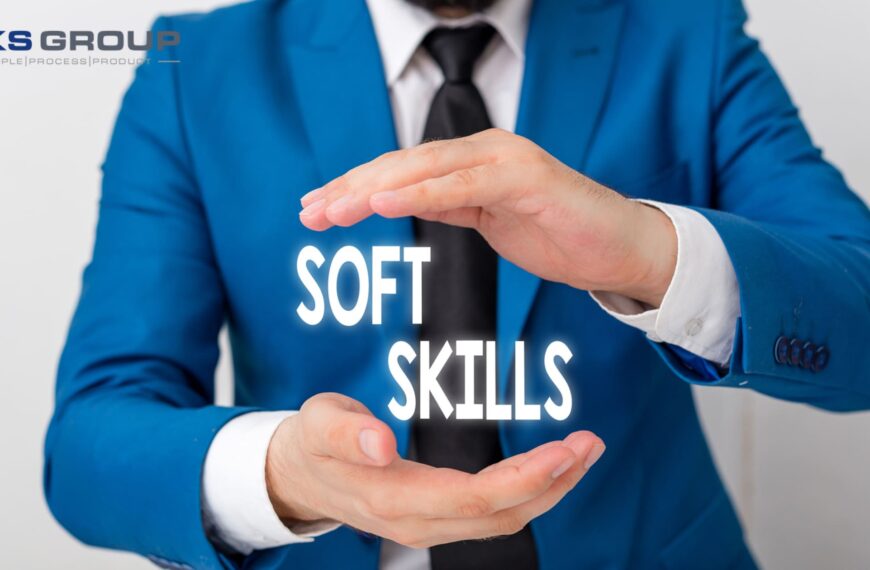Interviews are pivotal moments in one’s career journey. Whether you’re a seasoned professional or just starting, the key to success in an interview is preparation. In today’s competitive job market, it’s not enough to simply show up; you must present yourself as the ideal candidate. This blog will explore why preparation is crucial and provide you with actionable tips to ensure you ace your next interview.
Understanding the Importance of Interview Preparation.
Preparation is the cornerstone of interview success. It transforms a potentially nerve-wracking experience into a manageable, even enjoyable, opportunity to showcase your talents. Here’s why preparation is so critical:
- Boosts Confidence
– Walking into an interview prepared gives you the confidence you need to present yourself effectively. Confidence is often the key differentiator between candidates, as it signals to the interviewer that you are capable and ready for the role.
- Demonstrates Seriousness and Professionalism
– Employers can tell when a candidate has invested time in preparing for an interview. It shows that you are serious about the position and respect the interviewer’s time. This level of professionalism can set you apart from other candidates.
- Helps You Anticipate Questions
– Preparation allows you to anticipate and practice responses to common interview questions. Whether it’s explaining your strengths, discussing past experiences, or answering tricky behavioral questions, being prepared means you won’t be caught off guard.
- Allows You to Showcase Relevant Skills
– By preparing, you can highlight the specific skills and experiences that align with the job description. This targeted approach helps you tailor your answers to what the employer is looking for, increasing your chances of success.
Steps to Effective Interview Preparation
To ensure you’re thoroughly prepared for your interview, follow these essential steps:
- Research the Company
– One of the first steps in interview preparation is researching the company. Understand its history, mission, values, and culture. Familiarize yourself with its products, services, and recent news. This knowledge allows you to connect your skills and experiences to the company’s needs.
- Understand the Job Description
– Carefully review the job description to understand what the employer is looking for. Identify the key skills, qualifications, and experiences required, and think about how your background aligns with these. Prepare examples from your past work that demonstrate you have the qualities they seek.
- Prepare Your Answers
– There are several common interview questions that you should prepare for, including:
– “Tell me about yourself.”
– “Why do you want to work here?”
– “What are your strengths and weaknesses?”
– “Describe a challenging situation you’ve faced and how you handled it.”
– Practice your responses to these questions, ensuring they are concise, relevant, and demonstrate your value to the employer.
- Develop Your Own Questions
– Interviews are a two-way street. Prepare thoughtful questions to ask the interviewer. This shows that you are genuinely interested in the role and the company. Ask about company culture, growth opportunities, or what a typical day looks like in the role.
- Mock Interviews
– Conduct mock interviews with a friend, mentor, or career coach. This practice can help you refine your answers, improve your delivery, and get comfortable with the interview format.
- Review Your Resume and Portfolio
– Be prepared to discuss every detail on your resume, including your previous roles, responsibilities, and accomplishments. If you have a portfolio, ensure it is up-to-date and aligned with the job you’re applying for.
- Plan Your Journey
– If your interview is in person, plan your journey to ensure you arrive on time. Check the route, consider traffic or public transportation delays, and aim to arrive 10-15 minutes early.
- Dress Appropriately
– Dressing appropriately for the interview is part of your preparation. Research the company’s dress code and choose an outfit that reflects the company culture while maintaining professionalism.
- Prepare Mentally and Physically
– On the day of the interview, ensure you are well-rested and have eaten. Mental and physical preparation will help you stay focused and perform at your best during the interview.
Common Mistakes to Avoid in Interview Preparation
Even with the best intentions, candidates can make mistakes in their preparation. Here are some common pitfalls to avoid:
- Over-rehearsing Answers
– While it’s important to prepare, avoid over-rehearsing your answers. You want your responses to feel natural, not robotic or scripted. The key is to know your main points but be flexible in how you deliver them.
- Neglecting Company Culture
– Focusing solely on the job description and neglecting the company culture can be a mistake. Understanding the company culture is crucial, as it will help you determine if you’re a good fit and how to tailor your responses accordingly.
- Failing to Prepare Questions
– Not preparing questions for the interviewer can make you seem uninterested. Always have a few thoughtful questions ready to show your enthusiasm and engagement.
- Ignoring the Role of Non-verbal Communication
– Non-verbal communication, such as body language, eye contact, and posture, plays a significant role in interviews. Practice maintaining good posture, making eye contact, and offering a firm handshake if appropriate.
- Not Following Up
– After the interview, failing to send a thank-you note is a missed opportunity. A follow-up email expressing your appreciation for the opportunity and reiterating your interest in the role can leave a lasting positive impression.
The Role of Technology in Interview Preparation
In today’s digital age, technology plays a significant role in interview preparation. Here’s how you can leverage technology to your advantage:
- Online Research Tools
– Use platforms like LinkedIn, Glassdoor, and the company’s website to gather information. LinkedIn is particularly useful for researching the interviewer’s background, which can help you find common ground or tailor your responses.
- Video Interviews
– With the rise of remote work, video interviews have become more common. Ensure you are familiar with the video conferencing tool being used, check your internet connection, and choose a quiet, well-lit space for the interview.
- Practice Apps
– There are several apps and websites available that offer practice interview questions and scenarios. These tools can help you simulate the interview experience and receive feedback on your performance.
- Portfolio Websites
– If applicable, create an online portfolio to showcase your work. This can be a powerful tool in demonstrating your skills and achievements during the interview.
Conclusion
Preparation is undeniably the key to success in an interview. By researching the company, understanding the job description, practicing your answers, and leveraging technology, you can approach your interview with confidence and poise. Avoid common mistakes, and remember that the interview is an opportunity for both you and the employer to determine if there’s a mutual fit. With thorough preparation, you’ll be well-equipped to make a lasting impression and secure the job.
For more insights on career success and interview tips, visit our blog regularly. Good luck with your interview preparation!








